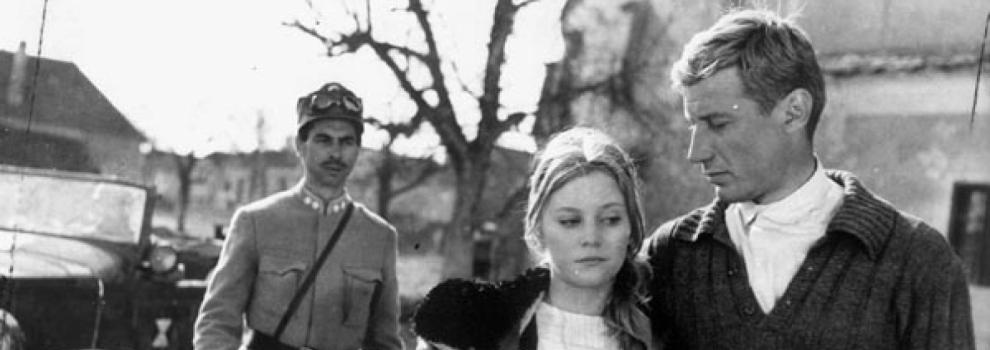
SPECIAL SCREENING: Forest of the Hanged – Liviu Ciulei
Past event
Cancelled
Postponed
9 Feb.'18
- 19:00
Preceded by a round table discussion
The film will be introduced by Dominique Nasta Professor in film studies at the ULB and preceded by a round table.
Q&a will follow the screening
19:00 Round table on the film
With Adrian Silvan-Ionescu (art historian, director of the Romanian Academy’s Institute of Art History), Marian Țuțui (film historian, author of publications on the cinema) and Bujor Rîpeanu (film critic and historian, author of books, dictionaries and articles on the subject).
20:00 Forest of the Hanged – Liviu Ciulei
(RO, 1964, 158', OV, st. EN)
Forest of the Hanged tells the difficult story of an ethnic Romanian drafted in the Austro-Hungarian army who refuses to fight against his kinsmen and comes to face the death penalty. World War I. The independent state of Romania declares war on Austria-Hungary, a confrontation that will end with Transylvania’s takeover by Romania in 1918. The engaging of Romania into the war poses a series of moral dilemmas for Apostol Bologa (Victor Rebengiuc), a young lieutenant of Romanian ethnicity who has been with the Austro-Hungarian army but is now transferred to fight in the region populated mostly by people of the same ethnicity. In 1965 director Liviu Ciulei’s received the award for Best Director at the Cannes International Film Festival for his screen adaptation, while Ovidiu Gologan was awarded for best camerawork at the festival in Milan. Forest of the Hanged (1922) by Liviu Rebreanu (1885-1944), the titan of Romanian literature is considered to be more than fiction, as it is inspired by the tragic death of the author’s brother who was executed by hanging after being caught trying to cross the frontline. In adapting this classic text for the screen, Liviu Ciulei changed the story in a way that remained faithful to the literary source and simultaneously reemerged as a modern treatment of the issues of war and loyalty. Ciulei’s stylish adaptation of Rebreanu’s novel is a memorable historical fresco that addresses complex Balkan confrontations and reinforces the importance of this early profound analysis of Balkan history.
Marian Ţuţui in The Cinema of the Balkans, London, Wallflower, 2006
Practical information
Dates
Location
Studio
Rue Ravenstein 23 1000 BrusselsLanguage
- English


